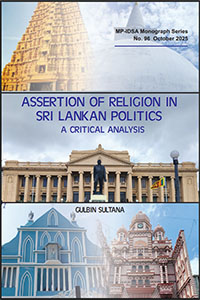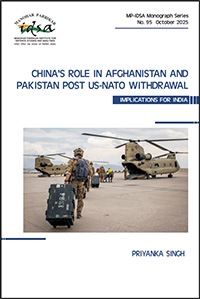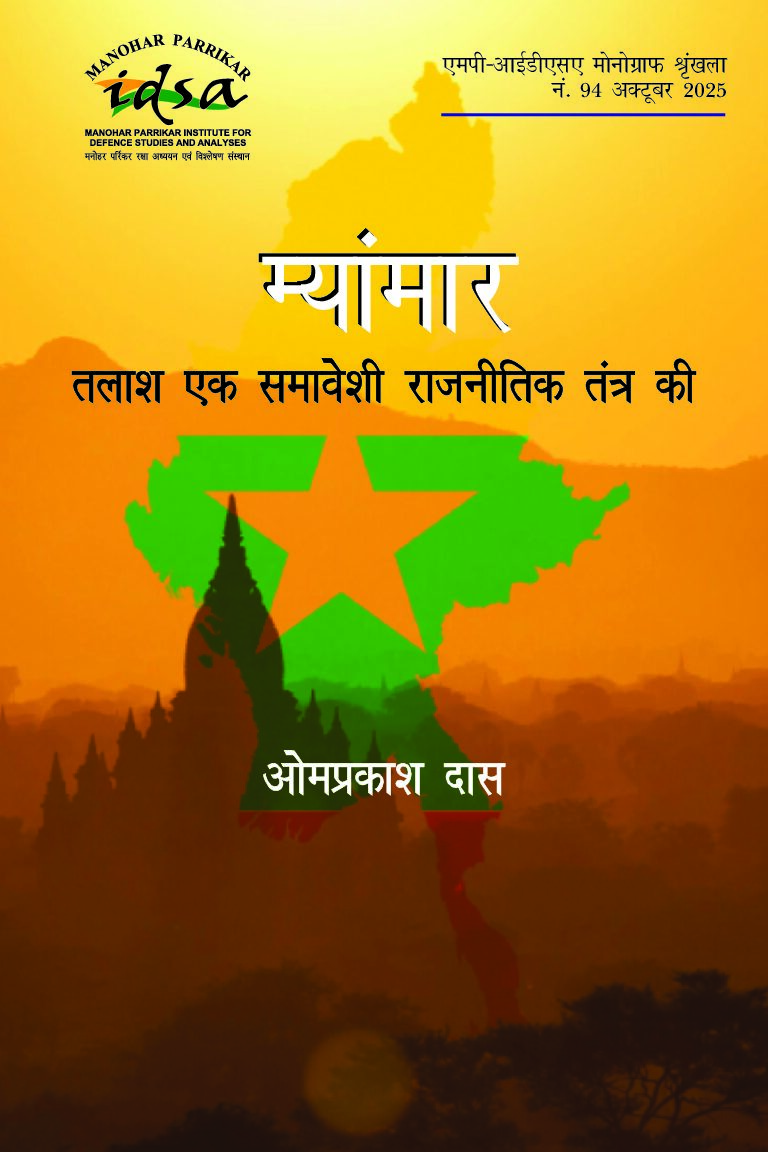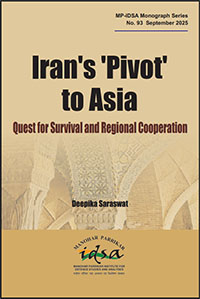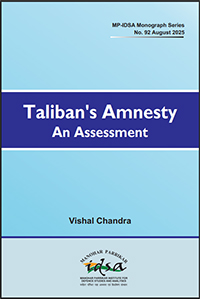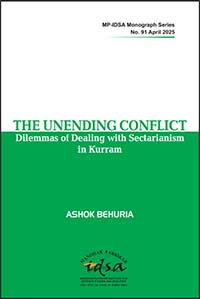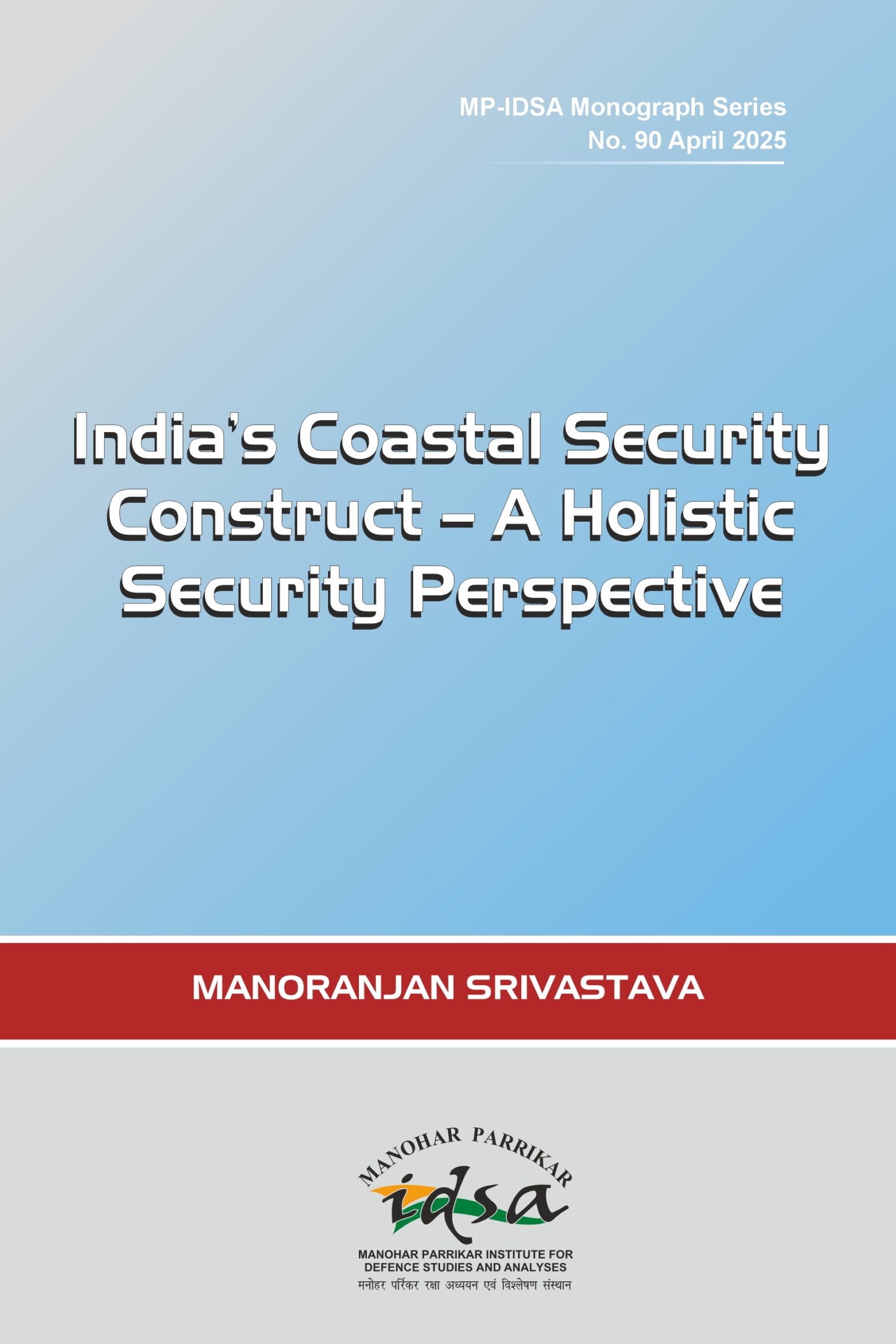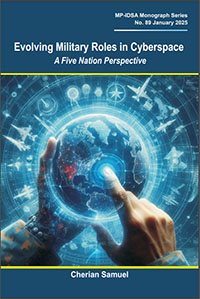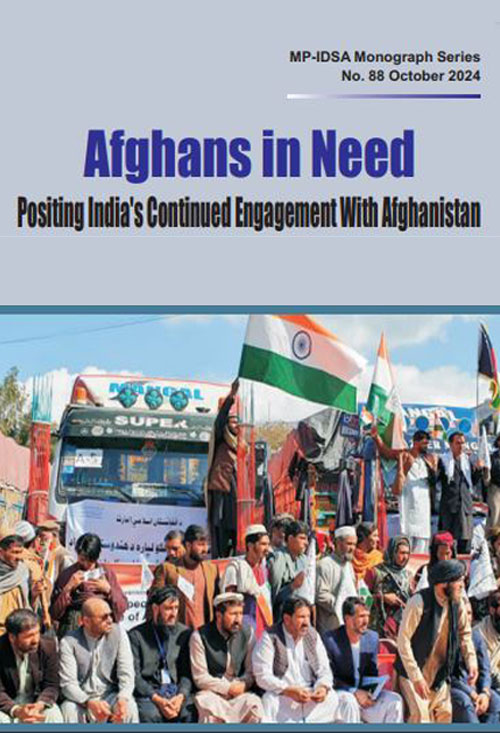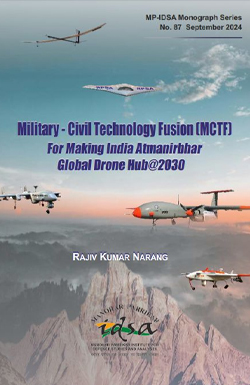Assertion of Religion in Sri Lankan Politics: A Critical Analysis
The monograph presents an in-depth analysis of the role of religion in Sri Lankan politics and its impact on the country in the social, political, security, and foreign policy domains. It focuses on the politics of the Sinhala-Buddhist and Muslim communities, as they have explicitly utilised their religions for political purposes in the post-independence period. To comprehend the role of religion in contemporary Sri Lankan politics, the monograph traces the evolution of the country's social and political structures, as well as the relationship between the state and religion, under various political systems and administrations from the ancient period till date. The historical and current political developments are analysed by applying the integrative theory in the context of religion and politics in Sri Lanka.- Gulbin Sultana |
- 2025 |
- Monograph


